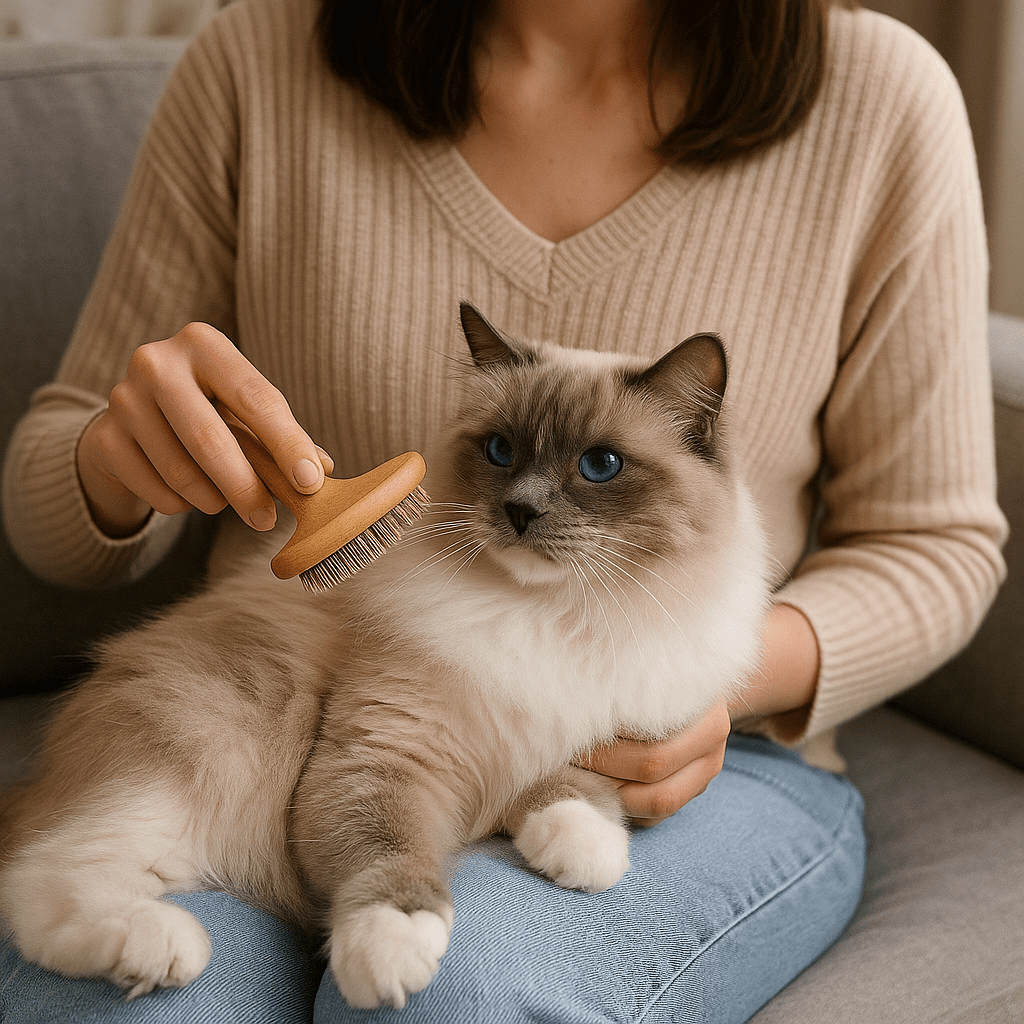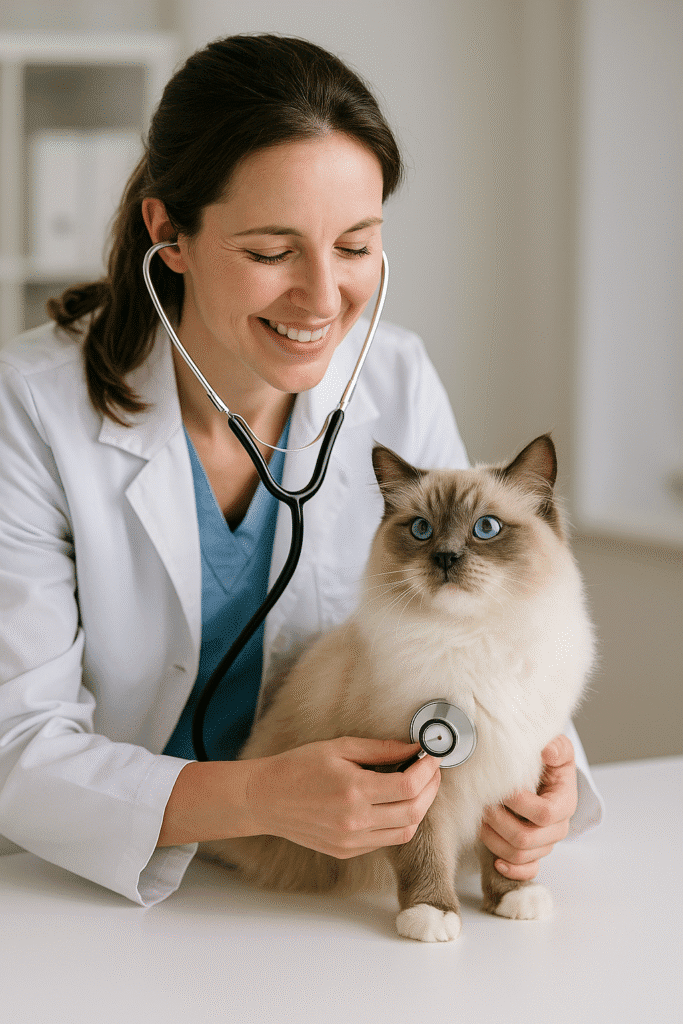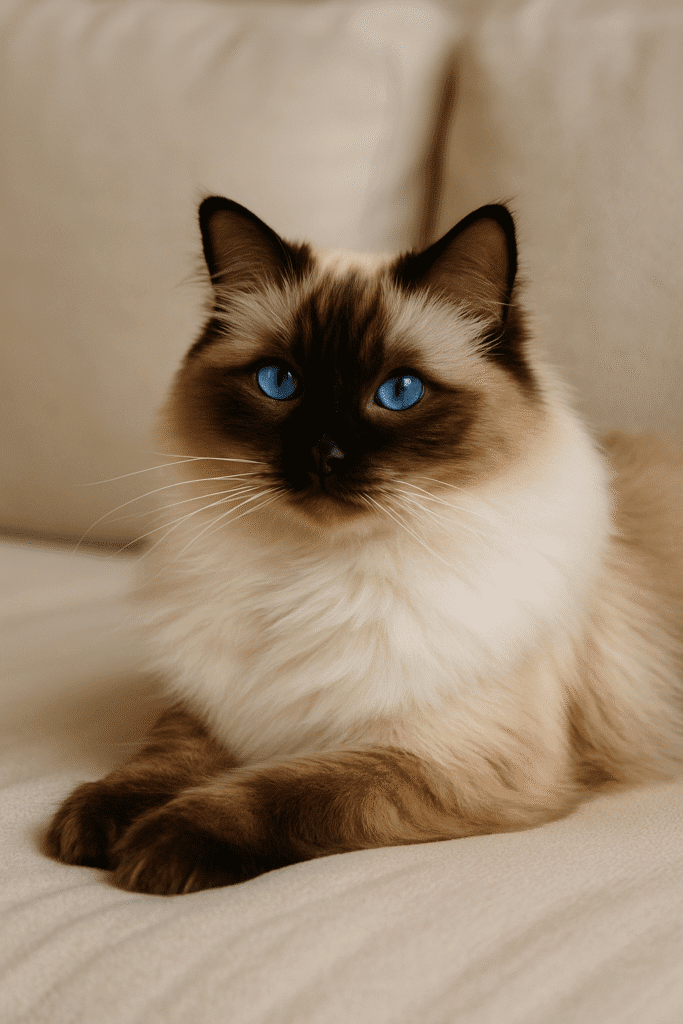Ragdoll Cats: Personality, Grooming & Health Care Tips
Ragdoll cats are one of the most beloved breeds in the world, known for their striking blue eyes, soft semi-long fur, and incredibly gentle temperament. If you are considering adopting or already living with a Ragdoll, understanding their unique personality, grooming requirements, and common health issues is essential. This guide will help you care for your Ragdoll so they can live a happy, healthy, and loving life with you.

Personality of Ragdoll Cats
Ragdolls are often called “dog-like cats” because of their affectionate and loyal nature. Unlike some independent cat breeds, Ragdolls thrive on human interaction. They enjoy being held, carried, and even following their owners around the house. They tend to go limp when picked up, which is how they got their name, “Ragdoll.”
If you’re looking for a calm and gentle cat, a Ragdoll might be the perfect companion. They are great with children and other pets, making them ideal family cats. Compared to more active breeds like Maine Coons, Ragdolls are more laid-back and prefer quiet, cozy environments.
Grooming Needs
Although Ragdolls have long fur, they do not mat as easily as other long-haired breeds. However, weekly grooming is essential to keep their coats shiny and healthy. Brushing two to three times per week will prevent tangles, reduce shedding, and minimize hairballs.
It is also recommended to trim their nails every two to three weeks and clean their ears regularly. Dental hygiene is crucial too; brushing their teeth or providing dental chews can prevent gum disease and tooth decay (related: Pet Dental Care).
Common Health Issues
While Ragdolls are generally healthy, they are prone to certain genetic and lifestyle-related health problems:
- Hypertrophic Cardiomyopathy (HCM): A common heart disease in cats, so regular vet checkups are necessary.
- Polycystic Kidney Disease (PKD): Can affect kidney function if not monitored.
- Obesity: Ragdolls love to lounge and can gain weight quickly if not given a proper diet and exercise. (See: Preventing Obesity in Pets)
Nutrition & Exercise
Feeding a high-quality protein-rich diet is key to maintaining your Ragdoll’s health. Avoid overfeeding and stick to portion control, as obesity is one of the most common issues in the breed. Play sessions with toys like feather wands, balls, and interactive puzzles can encourage exercise while also stimulating their minds.
Unlike highly energetic breeds, Ragdolls won’t demand constant play, but scheduling two to three active sessions a day will keep them healthy and engaged.
Are Ragdoll Cats Right for You?
If you want a loving, calm, and affectionate companion that enjoys being part of your daily life, a Ragdoll cat is an excellent choice. They are easy to groom, gentle with children, and enjoy being close to their humans. With proper care, nutrition, and regular vet visits, your Ragdoll can live a long and joyful life.
For more breed comparisons, check out our guide on Siamese Cats.

FAQ About Ragdoll Cats
Are Ragdoll cats hypoallergenic?
No, Ragdolls are not hypoallergenic, but their lower tendency to mat and moderate shedding may make them more tolerable for mild allergy sufferers.
How long do Ragdoll cats live?
With proper care, Ragdolls typically live between 12 to 17 years.
Do Ragdolls get along with dogs?
Yes! Their calm and social personality often makes them a good match for cat-friendly dogs.
Conclusion
Ragdoll cats are affectionate, calm, and easy to care for compared to many other breeds. With the right grooming, health checkups, and love, they will be your loyal companion for years. If you’re considering adding one to your family, make sure to provide a balanced diet, grooming routine, and plenty of cuddles.

